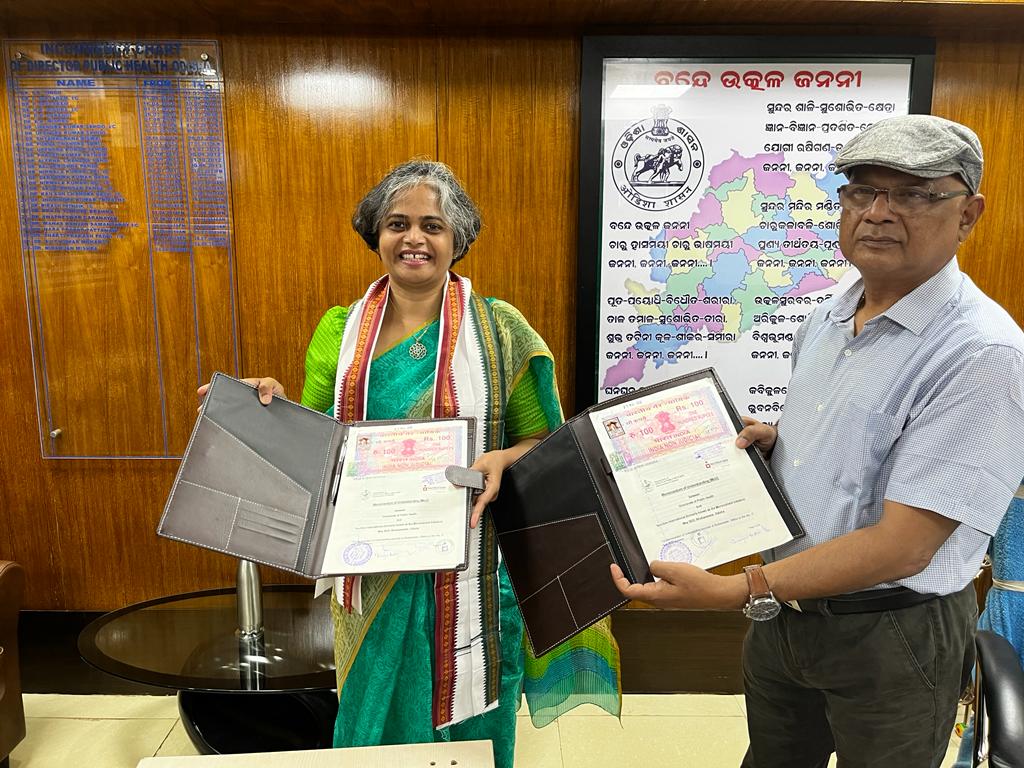Field Stories
Watch: Improving salt iodization in Tanzania
February 15, 2024
Government of Odisha and Nutrition International join efforts to eradicate iodine deficiency
The government of the Indian state of Odisha and Nutrition International have agreed to strengthen collaborative efforts towards their shared goal of achieving universal salt iodization.
Posted on June 10, 2022
Odisha, INDIA: The Government of Odisha and Nutrition International have signed a memorandum of understanding (MoU) to improve the implementation of the National Iodine Deficiency Disorders Control Program (NIDDCP) to achieve universal salt iodization (USI) in the state.
The India Iodine Survey, conducted by Nutrition International and International Council for Control of Iodine Deficiency Disorders (ICCIDD) in New Delhi in 2018-19, recorded 65.8% household coverage of iodized salt in Odisha, compared to the national average of 76.3%. Committed to improving coverage and ensuring universal salt iodization in the state, the Government of Odisha set up of the state iodine deficiency disorder (IDD) laboratory and strengthened the state IDD cell and Food and Drugs Control Administration. The government also introduced initiatives such as salt testing by frontline workers during Village Health, Sanitation and Nutrition Days and counselling beneficiaries on the benefits of iodized salt during gram sabha, or local governance meetings.
The MoU is an enhancement of these efforts, with Nutrition International supporting the government in improving the availability of adequately iodized salt at the household level in Odisha. Measures will be taken to achieve the NIDDCP’s objectives in the state, including improving coverage of adequately iodized salt, to reduce the total goiter rate to less than 5%, and ensuring a relative reduction in salt intake among the state’s population per the World Health Organization’s guidelines.

“This MoU further strengthens our commitment to eradicating iodine deficiency from the state and achieving USI,” said Dr Niranjan Mishra, Director, Directorate of Public Health, Government of Odisha. “Through our joint efforts with Nutrition International we hope to ensure that every household of Odisha consumes only adequately iodized salt, a staple fortified with a crucial micronutrient needed for optimal mental and physical development.”
The two organizations will work together to implement the national program by:
“At Nutrition International, as we celebrate our 30th anniversary this year, we look back at the work done with the Government of India to improve USI in the country,” said Mini Varghese, Country Director, Nutrition International India. “While a lot has been achieved in this long-lasting journey, the battle against iodine deficiency disorders is not won yet. The last mile is still left, and we cannot afford to lose focus now. We are delighted to witness the commitment of the Government of Odisha to improve the NIDDCP through an integrated health approach, which will further contribute to achieving the national targets for the Sustainable Development Goals.”
Since 1998, Nutrition International has been supporting the Government of India in achieving USI by improving monitoring, data collection, awareness building and capacity development of field officers. In the past, Nutrition International has supported the governments of Andhra Pradesh, Gujarat, Karnataka, Rajasthan, and Tamil Nadu to improve the implementation of the NIDDCP. With this MoU with the Government of Odisha, Nutrition International aims to move a step closer to achieving the national USI targets.